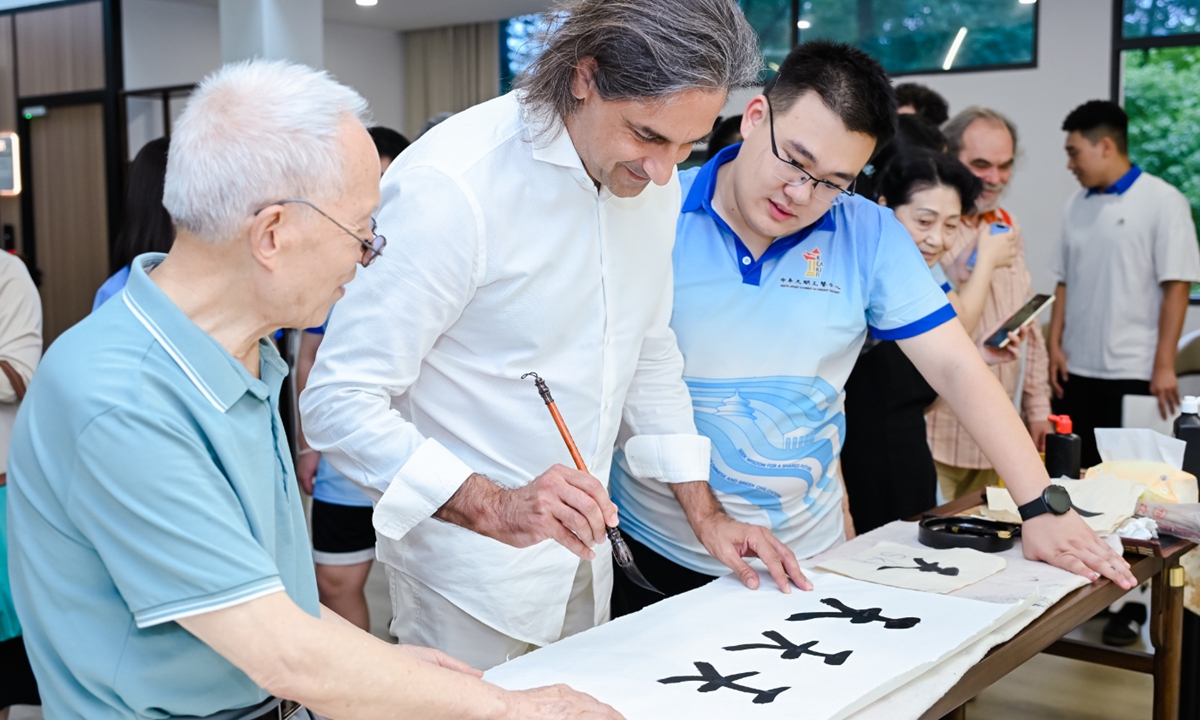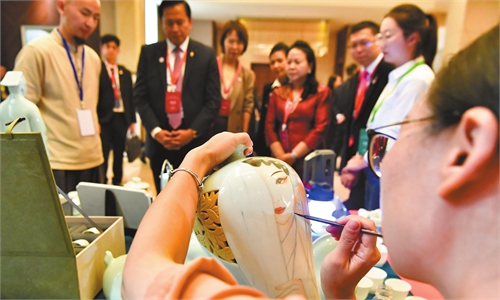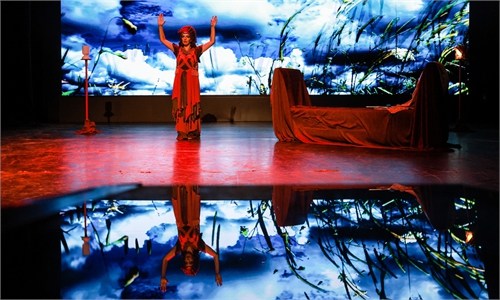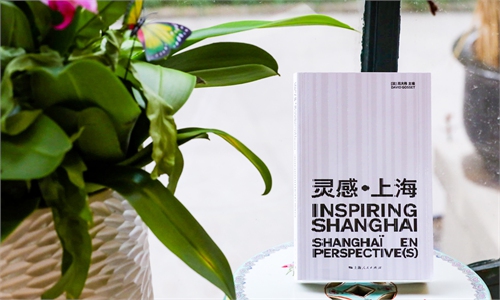ARTS / CULTURE & LEISURE
The 2nd Global Forum on Mutual Learning among Civilizations opens
Ancient wisdom can offer solutions to today’s challenges

Photo: Courtesy of organizers
Ancient philosophical thought is receiving renewed attention as scholars from five continents convene for the 2nd Global Forum on Mutual Learning among Civilizations, which opened on Wednesday with the theme "Ancient Wisdom for the Global South" at Southwest University in Southwest China's Chongqing Municipality. The forum aims to build a high-level academic platform for dialogue between the East and the West, with a focus on two emerging academic fields: classical studies and regional and country-specific studies.During the event, three parallel sub-forums will be held, including reading Plato from the Global South, exploring contemporary Greece from a global perspective, and discussing China-Europe relations in the context of mutual learning among civilizations. In addition, organizers announced a new initiative advocating the application of classical wisdom to support sustainable development efforts worldwide.
Speaking at the forum, Cui Yanqiang, director of the Center for Chinese and Greek Civilizations (KELKIP), emphasized the practical relevance of ancient knowledge. "The wisdom of the past can offer new solutions to today's global challenges," he noted, citing examples such as how Aristotle's concept of practical wisdom could contribute to improving global climate governance, and how the dialectical thinking embedded in I Ching (or the Book of Changes) may inspire modernization strategies in developing countries.
Tang Heng, ambassador of the Department of European Affairs of China's Foreign Ministry, stated that the recent joint establishment of the Center for Mutual Learning among Civilizations by Chinese and Greek universities is a landmark achievement in the development of bilateral relations between China and Greece, as well as in global civilizational exchanges.
"This form is highly relevant to current realities: Amid severe challenges to world peace and development, the path to revitalization for the Global South remains difficult. It is necessary to draw wisdom and strength from millennia-old civilizations to promote peaceful coexistence among nations and to revive development and prosperity," he said.
"Through cultural exchange, we can transcend civilizational divides; through mutual learning, overcome civilizational conflicts; and through inclusiveness, surpass notions of civilizational superiority."
The Greek Ambassador to China Evgenios Kalpyris addressed the forum, emphasizing the global significance of civilizational exchanges. He noted that Greek civilization is deeply interconnected with Africa, Asia, and the broader world, and highlighted the shared ethical foundations between Greek and Chinese traditions.
"It is no coincidence that virtue is a core concept in Plato's philosophy," Kalpyris said. "And on the other side of the world, Confucius also placed ethics at the center of his thought."
In addition to academic dialogue, participants discussed plans to deepen educational cooperation between China and Greece. This includes the establishment of new research centers, academic programs, and multilingual media platforms linking eight universities from both countries.
Wang Richun, director-general of the Department of Social Sciences of the Ministry of Education, stated at the event that such efforts will "create new pathways for mutual understanding, share stories that reflect diverse cultural traditions, and offer solutions for an increasingly complex world."
Wang Deyan, director of the national flagship course at North China University of Technology, told the Global Times on Wednesday that the forum's focus on classical wisdom and the Global South provides a timely academic framework for addressing contemporary challenges.
"Integrating insights from ancient philosophies into modern educational curricula can enhance cross-cultural understanding and critical analysis," he said. "Such efforts help build bridges among diverse civilizations, offering valuable perspectives for sustainable development and peaceful coexistence in an increasingly interconnected world."
Greek Minister of Culture Lina Mendoni has visited China on multiple occasions. She noted that in recent years, cultural exchanges between Greece and China have become increasingly diverse and dynamic, not only bringing the two peoples closer on a psychological level but also deepening mutual understanding across multiple fields, according to The Paper.
"The friendship between Greece and China is more than just a partnership between two countries - it is a dialogue between two great civilizations, which will help humanity find better ways to coexist in an increasingly complex and changing world," Mendoni said.
Currently, Greece is home to four Confucius Institutes, which have become important platforms for the Greek public to learn about China and its culture, and to promote cultural and people-to-people exchanges between China and Greece, according to The Paper.



